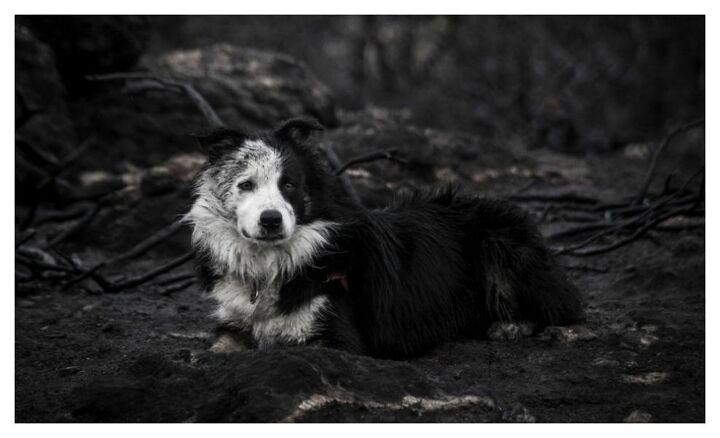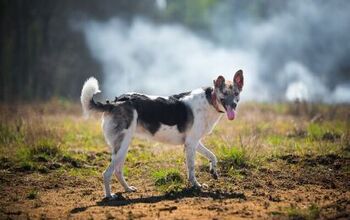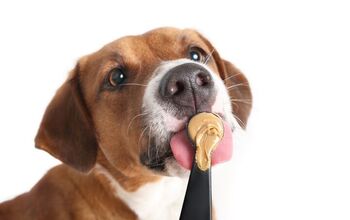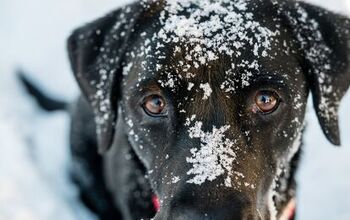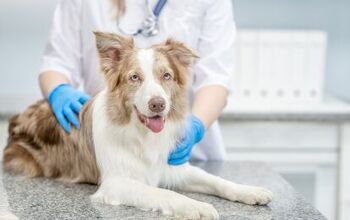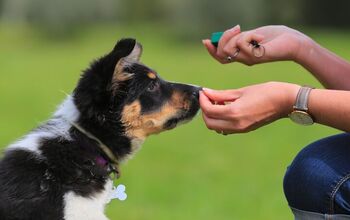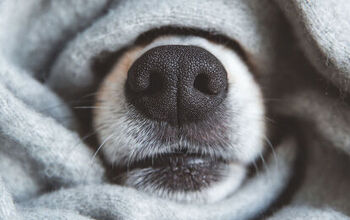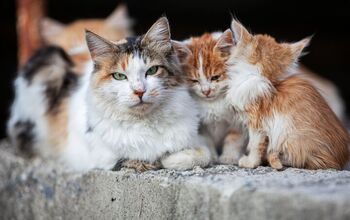How To Protect Pets In Wildfire Crisis

Over 5 million acres of the United States West Coast have been burned, and the devastation is immeasurable. Sadly, some of the most innocent and confused victims are pets and wildlife, with their humans doing the best they can to protect them.
And experts are doing their best to protect an offer advice in light of the dangers these wildfires bring to pets too. According to BluePearl Specialty and Emergency Pet Hospitals, it’s important to keep an eye out for life-impacting symptoms in animals who are near the fire and smoke zones in the Pacific Northwest and California.
Related: Loyal Dog Survives California Wildfires and Waits For His Humans
Dr. Jennifer Sergeef is an internist and the medical director at BluePearl in Daly City, California. Her practice is just a hair outside of San Francisco City limits, and about 30 miles from fires. Still, Daly City has been under unhealthy air quality alerts for almost two weeks, and Dr. Sergeef says that it’s important to watch pets for reactions to the poor air quality.
Dr. Sergeeff says the biggest concern for pets is those who have underlying respiratory issues or allergies. She’s also warning pet parents to make sure their pets avoid excessive heat because those high temperatures put dogs at higher risks of heatstroke. Heatstroke occurs in dogs when they simply take in more heat than their bodies can dissipate, and making sure they have plenty of water is important too.
Other ways pet parents can protect their pets during this tragic time is to try to limit their exposure to smoke. Depending on where you live, that can be like telling you to limit your exposure to air, though. Experts warn that smoke can cause irritation to your pet’s respiratory system and eyes, and can make chronic heart and lung disease worse.
Additionally, pay attention to the US Air Quality Index Eternal and the official health warnings about smoke. Talk to your vet about your pet’s issues, particularly if they suffer from anything chronic, and ask about suggestions for best managing how to spend time indoors as much as possible, or with minimal issue if you must evacuate.
Related: Wildfire Relocates Dogs To Prison; Inmates Now Rescuers
Unfortunately, many pet parents and their families have been forced to evacuate, and have already been exposed to smoke and inhalation. Experts suggest that if this is the case, or it looks imminent, to watch out for the following symptoms of smoke inhalation:
- Agitation or pacing
- Awkward or uncoordinated gait
- Skin Burns
- Difficulty breathing
- Increased breathing rate
- Facial Swelling
- Coughing
- Squinting of eyes
- Seizure
- Slow reaction time
It’s always wise to let your vet check your pet out if he’s been exposed to smoke, because breathing difficulty can get worse during the first 24 hours after smoke exposure. Some pets may require oxygen therapy or intubation to help keep their airways open.
Again, watch out for signs of heatstroke. Try walking your dog early in the morning or later in the evening to keep them cool, and keeping pets groomed can help because matted and tangled fur only helps trap heat in. If you believe your dog has been exposed to too much heat and is on the verge or suffering a heatsroke, soak him with towels and water while you put them in front of a fan. Call your veterinarian as you do and tell them you’re coming immediately (they may direct you to a veterinarian hospital).
Perhaps the saddest victims of the fires on the West Coast are those wild ones. As fires are spreading at exponential rates, wildlife is being displaced and that is scary, considering many predatory animals are now being forced closer to residential areas of safety. A Bobcat or a Mountain Lion looking for food in the chaos their life is may think your dog or cat looks tasty, so it’s wise to keep your pets inside around dawn and dusk when those animals may be seeking food. You CAN help local wildlife by leaving water out for them, though.
If your pet has been exposed to smoke or fire, it’s wise to seek immediate medical attention. Contact your vet to let them know what’s going on. In these COVID days, protocol may be different, so always call first and see what they suggest you do. It could save your pet’s life.
And sadly, if you are forced to evacuate, BluePearl has put together information for safety preparation that you can find here.

More by Lori Ennis



